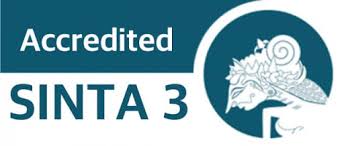Aspek Perkembangan Manajemen Pembelajaran Active Learning, Paikem Pada Kelas Unggulan
DOI:
https://doi.org/10.54069/attadrib.v5i2.247Keywords:
Management Learning, Active Learning, PAIKEM, Excellence ClassAbstract
This study aims to describe the management of Active Learning, PAIKEM for excellence students at Madrasah Ibtidaiyah Miftahul Huda with a research focus on supporting resources for successful curriculum implementation in excellence classes at MI Miftahul Huda Kayen Kidul. Implementation of School Management and Active Learning Learning Strategies at MI Miftahul Huda Kayen Kidul. Utilization of Learning Resources, Use of Learning Media and Monitoring of Curriculum Implementation at MI Miftahul Huda Kayen Kidul Kediri. The method used in this research is descriptive qualitative method. The results of this study are: there are three supporting resources for the success of MI Miftahul Huda's excellence class curriculum management, namely school management from the Madrasah principal regarding new innovations in excellence classes in the compulsory learning process using English and applying Active Learning in the learning process. Learning Resources do not use modules but CPS (Comprehension and Project Sheet) in English and Learning Media according to the material. The implementation of school management is planning, organizing, implementing and evaluating in excellence classes as well as learning methods used such as Role Playing, Jigsaw. Utilization of learning resources using natural spring according to subjects, English books. Learning media using LCD, paper. As well as for monitoring, namely after the learning process there is an evaluation of the excellence class handling the learning process and student outcomes in the excellence class according to the curriculum used.
Downloads
References
Anisa. (2022). Pendidik Kelas Unggulan MI Miftahul Huda. Kayen Kidul Kediri.
Cahyadi, Ani. (2019). Pengembangan Media dan Sumber Belajar. Laksita Indonesia. Banjarmasin.
Dodi, Limas. (2018). Nilai Spiritualitas Sayyed Hosein Nasr dalam Manajemen Pendidikan Islam. Jurnal Manajemen dan Pendidikan Islam, 4 (1), 71-90. https://doi.org/10.26594/dirasat.v4i1.1198
Gouedard, Pierre et. al. (2020). Curriculum Reform a Literature Review to Support Effective Implementation. Education and Skill, 8. https://doi.org/10.1787/efe8a48c-en
Hanafie Wardah dan Abdul Halik. (2021). Kompetensi Manajerial Kepala Madrasah dan Relasinya Terhadap Profesionalisme Guru. Uwais Inspirasi Indonesia: Ponorogo.
Hilya, Savira. (2022). Waka Kurikulum Kelas Unggulan MI Miftahul Huda, Kayen Kidul Kediri.
Indarti, Luluk. (2019). Manajemen Inovatif Kepala Madrasah dalam Memajukan Lembaga Pendidikan Islam. Jurnal Dinamika Penelitian, 19 (2), 167-186. https://doi.org/10.21274/dinamika.2019.19.2.167-186
Irmayanti, Shabrina dan Wiwik Wijayanti. (2019). Curriculum Management: A Case Study at Sanggar Anak Alam (SALAM). Atlantis Press.
Johnson, Michael. (2021). Teaching excellence in the context of business and management education: Perspectives from Australian, British and Canadian University. International Journal of Management Education, 3 (19), 1-22. https://doi.org/10.1016/j.ijme.2021.100508
Khairuddin. (2020). Implementasi Inovasi Manajemen Pembelajaran Dalam Peningkatan Kualitas Pendidikan Islam Di Madrasah Aliyah Negeri 2 Model Medan. Disertasi, Universitas Islam Negeri Sumatera Utara, Sumatera.
Khotimah, Adilia Khusnul dan Limas Dodi. (2022). Manajemen Integrasi Kurikulum Madrasah dan Pesantren di MTs Hidayatus Sholihin Kediri. Jurnal al-Makrifat, 7 (1), 144-169.
Maimunah. (2014). Sumber Daya Pendukung Keberhasilan Pelaksanaan Kurikulum. Jurnal Al-Afkar, II, 8. https://doi.org/10.28944/afkar.v2i2.96
Masykur. (2019). Teori dan Telaah Pengembangan Kurikulum. Lampung: Aura Publishing.
Miswari. (2020). “Integrated Curriculum Implementation In Education Quality Improvement”. Journal Education and Humanity, 572-576. https://doi.org/10.2991/assehr.k.211125.108
Mustainah. (2022.). Kepala Madrasah MI Miftahul Huda, Kayen Kidul Kediri.
Nasbi, Ibrahim. (2017) “Manajemen Kurikulum: Sebuah Kajian Teoritis”. Jurnal Idaarah, 1 (2): 318-330. https://doi.org/10.24252/idaarah.v1i2.4274
Nurdyansyah dan Eni Fariyatul Fahyuni. 2016. Inovasi Model Pembelajaran. Sidoarjo: Nizamia Learning Center.
Nurdyansyah. (2019). Media Pembelajaran Inovatif. Sidoarjo: UMSIDA Press.
Pratami, Andhyarnita et. al. (2021). Curriculum Management in the Intercultural School. International Journal of Elementary Education, 5 (1), 107-114. https://doi.org/10.23887/ijee.v5i1.33937
Purwadhi. (2019. Curriculum Management in the 21st Century Learning. Jurnal Pendidikan Sains Sosial dan Kemanusiaan, 12 (2), 143-156. https://doi.org/10.2121/sosiohumanika.v12i2.1238
Rahman. (2017). Abd. Dasar-Dasar Manajemen. Malang: Intelegensia Media.
Siahaan, Amiruddin et. al. (2021). Implentasi Manajemen Mutu Pembelajaran Di Mts Swasta Al- Wasliyah Tembung. Journal Education Research and Social Study, 2 (1), 13-24.
Supriadi. (2015). Pemanfaatan Sumber Belajar Dalam Proses Pembelajaran,” Lantanida Journal, 3 (2), 127. https://doi.org/10.22373/lj.v3i2.1654.
Triwiyanto, Teguh. (2015). Manajemen Kurikulum dan Pembelajaran. Jakarta: Bumi Aksara.
Utami, Yoga Dwi. (2020). Manajemen Progam Kelas Unggulan Untuk Meningkatkan Citra Madrasah (Studi Kasus Di Madrasah Tsanawiyah Negeri 1 Kabupaten Madiun). Tesis, IAIN Ponorogo.
Wiyani, Novan Ardi. (2018). Pendidikan Karakter Berbasis Total Quality Management. Yogyakarta: ar-Ruzz Media.
Yusniar, Nurlia et. al. (2022). Implementation of Curriculum Development: Case Study on Early Childhood Education Teachers in Sragen Regency. Journal of Etika Demokrasi, 7 (2), 363-372. https://doi.org/10.26618/jed.v7i2.7354
Downloads
Published
How to Cite
Issue
Section
License
Copyright (c) 2022 Tanya Fawzi, Limas Dodi

This work is licensed under a Creative Commons Attribution-ShareAlike 4.0 International License.





